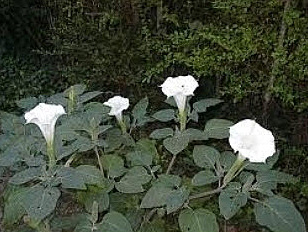- Region
- Águilas
- Alhama de Murcia
- Jumilla
- Lorca
- Los Alcázares
- Mazarrón
- San Javier
-
ALL AREAS & TOWNS
- AREAS
- SOUTH WEST
- MAR MENOR
- MURCIA CITY & CENTRAL
- NORTH & NORTH WEST
- TOWNS
- Abanilla
- Abarán
- Aguilas
- Alamillo
- Alcantarilla
- Aledo
- Alhama de Murcia
- Archena
- Balsicas
- Blanca
- Bolnuevo
- Bullas
- Cañadas del Romero
- Cabo de Palos
- Calasparra
- Camping Bolnuevo
- Campo De Ricote
- Camposol
- Canada De La Lena
- Caravaca de la Cruz
- Cartagena
- Cehegin
- Ceuti
- Cieza
- Condado de Alhama
- Corvera
- Costa Cálida
- Cuevas De Almanzora
- Cuevas de Reyllo
- El Carmoli
- El Mojon
- El Molino (Puerto Lumbreras)
- El Pareton / Cantareros
- El Raso
- El Valle Golf Resort
- Fortuna
- Fuente Alamo
- Hacienda del Alamo Golf Resort
- Hacienda Riquelme Golf Resort
- Isla Plana
- Islas Menores & Mar de Cristal
- Jumilla
- La Azohia
- La Charca
- La Manga Club
- La Manga del Mar Menor
- La Pinilla
- La Puebla
- La Torre
- La Torre Golf Resort
- La Unión
- Las Palas
- Las Ramblas
- Las Ramblas Golf
- Las Torres de Cotillas
- Leiva
- Librilla
- Lo Pagan
- Lo Santiago
- Lorca
- Lorquí
- Los Alcázares
- Los Balcones
- Los Belones
- Los Canovas
- Los Nietos
- Los Perez (Tallante)
- Los Urrutias
- Los Ventorrillos
- Mar De Cristal
- Mar Menor
- Mar Menor Golf Resort
- Mazarrón
- Mazarrón Country Club
- Molina de Segura
- Moratalla
- Mula
- Murcia City
- Murcia Property
- Pareton
- Peraleja Golf Resort
- Perin
- Pilar de la Horadada
- Pinar de Campoverde
- Pinoso
- Playa Honda
- Playa Honda / Playa Paraíso
- Pliego
- Portmán
- Pozo Estrecho
- Puerto de Mazarrón
- Puerto Lumbreras
- Puntas De Calnegre
- Region of Murcia
- Ricote
- Roda Golf Resort
- Roldan
- Roldan and Lo Ferro
- San Javier
- San Pedro del Pinatar
- Santiago de la Ribera
- Sierra Espuña
- Sucina
- Tallante
- Terrazas de la Torre Golf Resort
- Torre Pacheco
- Totana
- What's On Weekly Bulletin
- Yecla


- EDITIONS:
 Spanish News Today
Spanish News Today
 Alicante Today
Alicante Today
 Andalucia Today
Andalucia Today
Be aware, the Datura stramonium can kill
This plant grows in many places throughout Spain
Spanish police reported in October 2013 that a commercial cultivation of the Datura stramonium plant, also known as jimson weed, devils trumpet, stinkweed, devil´s cucumber and in South Africa as the mad seeds  plant, had been discovered and dismantled, the plant under cultivation in order to use it for its hallucinogenic properties.
plant, had been discovered and dismantled, the plant under cultivation in order to use it for its hallucinogenic properties.
This plant is widely grown in the hotter regions of Spain, but many expats may unwittingly have this attractive plant growing in their gardens without realising just how dangerous it is.
The Ed has to own up to being one of those people, who was given several packets of home produced seeds by a gardening enthusiast and introduced to the plant as a “dry garden must have”, due to its “durability, ability to self-seed, attractive white flowers and horse-chestnut-like fruits. “
It wasn’t until reading a news report about an individual who was seriously ill after eating leaves of the plant that the dangers lurking in the garden were highlighted, the free range chickens were grounded until the garden could be declared a datura seed-free zone and every plant was ripped out and burnt, although new plants still pop up after the rains in spite of the most strenuous efforts to eliminate them.
This plant can cause hallucinations, delirium and even coma or death in anyone who ingests them and although that may be tempting for those looking for a cheap thrill in an economic crisis, does cause death in children and animals from time to time, so be aware that what may be sitting outside in the garden right now could be a killer, and now could be a good time to rip it out if the grandchildren are coming to visit anytime soon.
One of the biggest problems with this plant is that it self-seeds so easily, and so profusely, each spiney ball shaped seed head filled with dozens of seeds. Even ripping out the parent plant does little to prevent the spread of these plants, as the following year they will grow and flower again at the same time of year and in the same place, the only effective way to deal with them completely being to remove the young seedlings before they get chance to flower and remain vigilant for several years afterwards.
Soil quality is of no concern, as they flourish equally well in completely dry conditions on a south facing bed, and in rich soil in shaded corners.
Always wear gloves when handling them and keep well away from animals.
A little bit of history relating to this plant

The plant is believed to have arrived in America from the West Indies or Asia:
"The James-Town Weed (which resembles the Thorny Apple of Peru, and I take to be the plant so calld) is supposed to be one of the greatest coolers in the world. This being an early plant, was gatherd very young for a boild salad, by some of the soldiers sent thither to quell the rebellion of Bacon (1676); and some of them ate plentifully of it, the effect of which was a very pleasant comedy, for they turned natural fools upon it for several days: one would blow up a feather in the air; another would dart straws at it with much fury; and another, stark naked, was sitting up in a corner like a monkey, grinning and making mows [grimaces] at them; a fourth would fondly kiss and paw his companions, and sneer in their faces with a countenance more antic than any in a Dutch droll.
In this frantic condition they were confined, lest they should, in their folly, destroy themselves - though it was observed that all their actions were full of innocence and good nature. Indeed, they were not very cleanly; for they would have wallowed in their own excrements, if they had not been prevented. A thousand such simple tricks they played, and after eleven days returned themselves again, not remembering anything that had passed. - The History and Present State of Virginia, 1705"
For other helpful information about living in Spain, laws in Spain and common pitfalls of Spain, go to the expat factsheets list: Expat factsheets, your questions answered
















